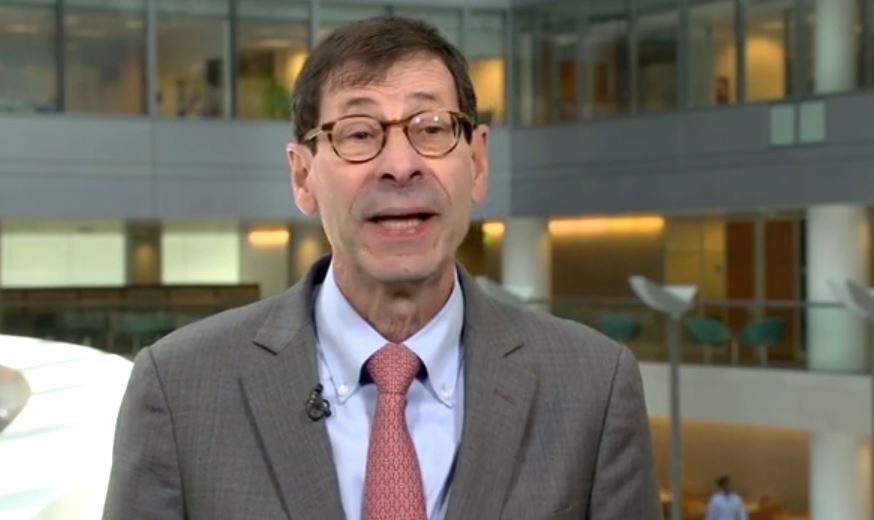The latest update to the IMF World Economic Outlook sees a continued strengthening global growth environment, but noted that the balance of risk is turning negative, Research Department Director Maury Obstfeld said ahead of the report’s release in Washington, DC Monday (July 16).
“The expansion continues. Our forecast for 3.9 percent growth for this year and next is unchanged, but the expansion is also less balanced. We have downgrades for the UK and Japan, while the US continues to grow strongly. In the emerging world, some countries are up… some are down,” Obstfeld said.
Obstfeld said US growth will begin to slow from 2.9 percent this year to 2.7 percent in 2019 as the effects of tax cuts wear off.
The report notes financial tightening could also be triggered by higher inflation readings in the United States, where unemployment is below 4 percent but markets are pricing in a much shallower path of interest rate increases than the one in the projections of the Federal Open Market Committee.
India remains the fastest growing major world economy although its pace of growth is slowing from earlier projections, while China is holding steady at 6.6 percent projected growth this year.
Growth projections have been revised down for Argentina, Brazil, and India, while the 2019 outlook for some oil exporters has strengthened.
There are risks that could slow or derail growth, Obstfeld said.
“Well, we now project that risks are more tilted to the downside even in the near-term and the biggest of those risks is the risk that current trade tensions escalate in to a cycle of protection and retaliation that takes a chunk out of growth,” the IMF’s chief economist noted.
“There are of course other risks that we have emphasized before. Public debts, private debts are very high and if financial conditions should tighten unexpectedly this would put a lot of borrowers under strain. It would create a difficult situation for emerging markets as well.” said Obstfeld.
“For advanced economies we still see inflation and wage growth that is extremely subdued. Policy support may be necessary, especially in countries with open output gaps. For emerging market’s structural reforms are necessary, as they are in advanced markets. Financial stability remains a priority and everywhere we have to think about inclusive growth and make that a priority,” said Obstfeld.
The IMF continues to recommend that countries take advantage of the current buoyant economic situation to shore up their fiscal positions and prepare for the next downturn, whenever that inevitably hits.
“There are things that countries can do on their own, there are things they have to do together. On their own, all countries need growth-enhancing structural reforms. Many need to rebuild fiscal buffers because the next recession will definitiely come,” said Obstfeld.
“But the multilateral system and multilateral cooperation will need continues attention. In the trade area this is particularly urgent. There is a lot of room to improve the functioning of the global trade system. But there are also continuing challenges from climate change, from international taxation, from global imbalances, from migration where countries need to get together and come up with common solutions,” he noted.
A full copy of the report including data on specific countries and regions may be found at IMF.org/WEO

















